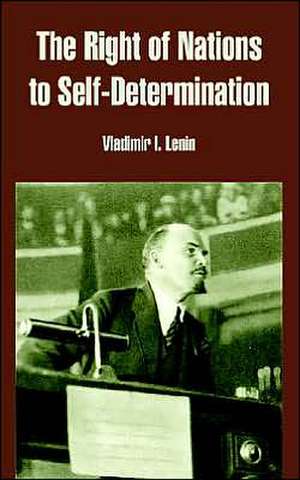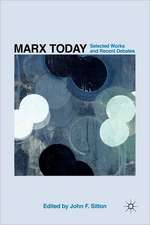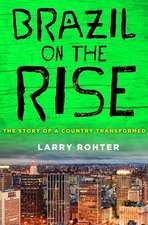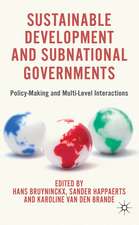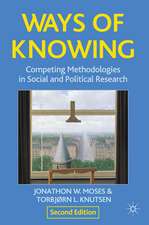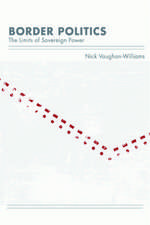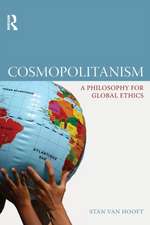The Right of Nations to Self-Determination
Autor Vladimir Ilich Leninen Limba Engleză Paperback – 30 sep 2004
Preț: 152.97 lei
Nou
Puncte Express: 229
Preț estimativ în valută:
29.28€ • 31.82$ • 24.61£
29.28€ • 31.82$ • 24.61£
Carte tipărită la comandă
Livrare economică 21 aprilie-05 mai
Preluare comenzi: 021 569.72.76
Specificații
ISBN-13: 9781410217059
ISBN-10: 1410217051
Pagini: 128
Dimensiuni: 127 x 203 x 8 mm
Greutate: 0.13 kg
Editura: University Press of the Pacific
Locul publicării:United States
ISBN-10: 1410217051
Pagini: 128
Dimensiuni: 127 x 203 x 8 mm
Greutate: 0.13 kg
Editura: University Press of the Pacific
Locul publicării:United States
Notă biografică
Lenin, Vladimir Ilyich (1870-1924) - one of the leaders of the Bolshevik party since its formation in 1903. Led the Soviets to power in October, 1917. Elected to the head of the Soviet government until 1922, when he retired due to ill health.
Lenin, born in 1870, was committed to revolutionary struggle from an early age - his elder brother was hanged for the attempted assassination of Czar Alexander III. In 1891 Lenin passed his Law exam with high honors, whereupon he took to representing the poorest peasantry in Samara. After moving to St. Petersburg in 1893, Lenin's experience with the oppression of the peasantry in Russia, coupled with the revolutionary teachings of G V Plekhanov, guided Lenin to meet with revolutionary groups. In April 1895, his comrades helped send Lenin abroad to get up to speed with the revolutionary movement in Europe, and in particular, to meet the Emancipation of Labour Group, of which Plekhanov head. After five months abroad, traveling from Switzerland to France to Germany, working at libraries and newspapers to make his way, Lenin returned to Russia, carrying a brief case with a false bottom, full of Marxist literature.
On returning to Russia, Lenin and Martov created the League for the Struggle for the Emancipation of the Working Class, uniting the Marxist circles in Petrograd at the time. The group supported strikes and union activity, distributed Marxist literature, and taught in workers education groups. In St. Petersburg Lenin begins a relationship with Nadezhda Krupskaya. In the night of December 8, 1895, Lenin and the members of the party are arrested; Lenin sentenced to 15 months in prison. By 1897, when the prison sentence expired, the autocracy appended an additional three year sentence, due to Lenin's continual writing and organising while in prison. Lenin is exiled to the village of Shushenskoye, in Siberia, where he becomes a leading member of the peasant community. Krupskaya is soon also sent into exile for revolutionary activities, and together they work on party organising, the monumental work: The Development of Capitalism in Russia, and the translating of Sidney and Beatrice Webb's Industrial Democracy.
After his term of exile ends, Lenin emigrates to Münich, and is soon joined by Krupskaya. Lenin creates Iskra, in efforts to bring together the Russian Social Democratic Labour Party, which had been scattered after the police persecution of the first congress of the party in 1898.
